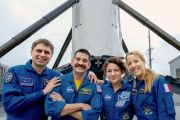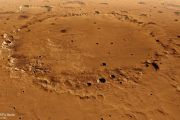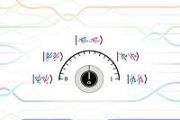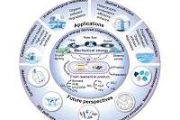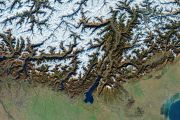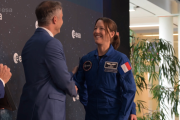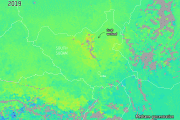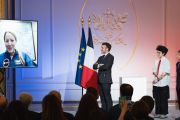
Copernical Team
Galaxy mergers light up fastest growing black holes
 New Euclid satellite observations indicate that collisions between galaxies trigger the most powerful active galactic nuclei in the universe. The results strengthen the link between galaxy mergers and rapid growth phases of supermassive black holes at galactic centers.
Active galactic nuclei are periods when supermassive black holes at the center of galaxies accrete surrounding matter and
New Euclid satellite observations indicate that collisions between galaxies trigger the most powerful active galactic nuclei in the universe. The results strengthen the link between galaxy mergers and rapid growth phases of supermassive black holes at galactic centers.
Active galactic nuclei are periods when supermassive black holes at the center of galaxies accrete surrounding matter and Philosopher argues AI consciousness may remain unknowable
 A University of Cambridge philosopher argues that current evidence about consciousness is too limited to determine whether artificial intelligence becomes conscious, and that a reliable test for machine consciousness is unlikely to emerge for a long time, if at all. Dr Tom McClelland contends that as artificial consciousness moves from science fiction into an ethical concern, the only justifiabl
A University of Cambridge philosopher argues that current evidence about consciousness is too limited to determine whether artificial intelligence becomes conscious, and that a reliable test for machine consciousness is unlikely to emerge for a long time, if at all. Dr Tom McClelland contends that as artificial consciousness moves from science fiction into an ethical concern, the only justifiabl Titan interior study points to thick slushy ice shell instead of global ocean
 Careful reanalysis of measurements gathered more than a decade ago indicates that Saturn's largest moon, Titan, likely lacks a vast liquid-water ocean beneath its ice, contrary to earlier interpretations of Cassini data. Instead, the work suggests that an icy journey downward from the surface would encounter extensive high-pressure ice, slushy layers, and pockets of meltwater closer to the rocky
Careful reanalysis of measurements gathered more than a decade ago indicates that Saturn's largest moon, Titan, likely lacks a vast liquid-water ocean beneath its ice, contrary to earlier interpretations of Cassini data. Instead, the work suggests that an icy journey downward from the surface would encounter extensive high-pressure ice, slushy layers, and pockets of meltwater closer to the rocky Origami style lunar rover wheel expands to climb steep caves
 A joint team from the Korea Advanced Institute of Science and Technology KAIST and the Unmanned Exploration Laboratory UEL has developed a transformable airless wheel designed to help small rovers access steep lunar pits and lava tubes. The wheel targets subsurface sites considered promising for future human habitats because they shield against cosmic radiation and extreme temperature swings.
A joint team from the Korea Advanced Institute of Science and Technology KAIST and the Unmanned Exploration Laboratory UEL has developed a transformable airless wheel designed to help small rovers access steep lunar pits and lava tubes. The wheel targets subsurface sites considered promising for future human habitats because they shield against cosmic radiation and extreme temperature swings. Perseverance rover cleared for long distance Mars exploration
 After nearly five years operating inside Mars Jezero Crater, NASA's Perseverance rover has logged almost 25 miles (40 kilometers) of driving while engineers certify that its mobility hardware and other subsystems can keep working for many more years.
Built and operated by NASA's Jet Propulsion Laboratory in Southern California, Perseverance is following up the long-running Curiosity rover
After nearly five years operating inside Mars Jezero Crater, NASA's Perseverance rover has logged almost 25 miles (40 kilometers) of driving while engineers certify that its mobility hardware and other subsystems can keep working for many more years.
Built and operated by NASA's Jet Propulsion Laboratory in Southern California, Perseverance is following up the long-running Curiosity rover An 'origami' airless wheel to explore lunar caves
Verifying that you are not a bot
Billionaire Trump nominee confirmed to lead NASA amid Moon race
Verifying that you are not a bot
GoMars model simulates 50-year Martian dust cycle
Verifying that you are not a bot
Europe's Ariane 6 rocket puts EU navigation satellites in orbit
Verifying that you are not a bot
Supernova at edge of observable universe spotted by James Webb Space Telescope
 An international collaboration of astronomers has used the James Webb Space Telescope (JWST) to detect a supernova at an unprecedented distance in the early universe, tied to a long-duration gamma-ray burst. The team observed the explosive death of a massive star when the universe was about 730 million years old, placing the event deep in the era of reionisation. The discovery offers a direct vi
An international collaboration of astronomers has used the James Webb Space Telescope (JWST) to detect a supernova at an unprecedented distance in the early universe, tied to a long-duration gamma-ray burst. The team observed the explosive death of a massive star when the universe was about 730 million years old, placing the event deep in the era of reionisation. The discovery offers a direct vi 


